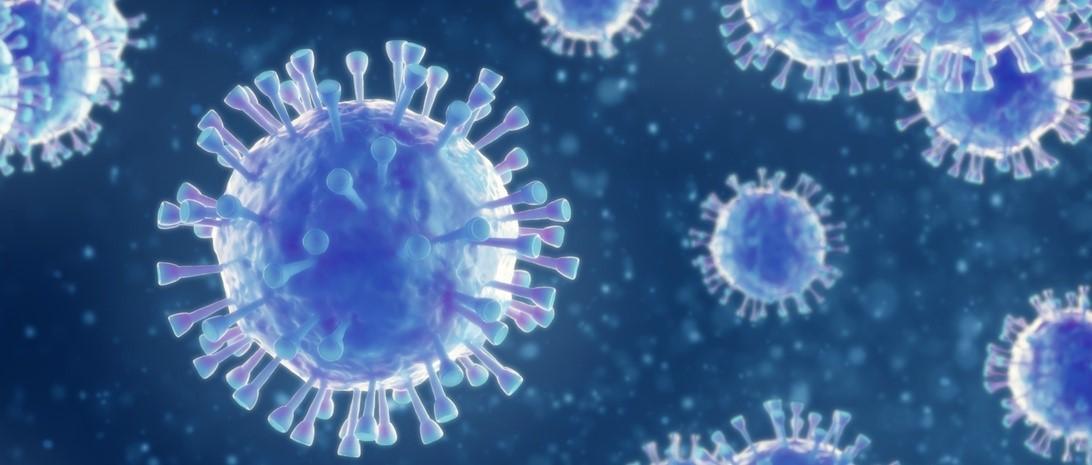
La grippe porcine au Royaume-Uni : Quels sont les symptômes de la nouvelle souche ?
Peer reviewed by Dr Krishna Vakharia, MRCGPAuthored by Lydia SmithOriginally published 28 Nov 2023
- TéléchargerTélécharger
- Partager
A case of a new strain of swine flu has been confirmed in the UK. The infection was detected in a routine flu screening test at a GP surgery in North Yorkshire. Here's everything you need to know about the virus.
Dans cet article :
Poursuivre la lecture ci-dessous
What is swine flu?
Swine flu is a type of viral infection. It's called swine flu because it resembles a respiratory infection that pigs can get. This is the first detection of this particular strain of swine flu - called A(H1N2)v - in a human in the UK.
Swine flu is usually caused by three subtypes called H1N1, H1N2 and H3N2. These types occasionally infect humans, usually after direct or indirect exposure to pigs or contaminated environments.
In 2009, a swine flu pandemic caused by H1N1 infected millions of people worldwide. However, the current confirmed case is from a different strain.
The person infected, who has not been identified, had a mild illness but has now recovered.
Sélection de patients pour Infections virales

Infections
Les jeunes adultes doivent-ils s'inquiéter de la grippe ?
Nous avons l'habitude d'entendre parler de la saison de la grippe chaque hiver - et de nombreuses personnes appartenant aux groupes les plus vulnérables se font vacciner contre cette maladie saisonnière. Les adolescents et les jeunes adultes qui n'ont pas de problèmes de santé sous-jacents sont généralement considérés comme plus résistants à cette maladie. Mais doivent-ils s'inquiéter davantage de la grippe ? Et la pandémie actuelle fait-elle une différence ?
par Gillian Harvey

Infections
Rubéole
La rubéole est une infection causée par le virus de la rubéole. Bien qu'elle survienne le plus souvent chez les jeunes enfants, elle peut toucher n'importe qui. La maladie est généralement bénigne. Cependant, chez une femme enceinte, la rubéole peut causer de graves dommages à l'enfant à naître. La vaccination contre la rougeole, les oreillons et la rubéole (vaccin ROR) a rendu la rubéole rare au Royaume-Uni.
par le Dr Mary Harding, MRCGP
How was this case of swine flu detected?
The case was discovered as part of routine national flu surveillance, undertaken by the UK Health Security Agency (UKHSA) and the Royal College of General Practitioners (RCGP).
The patient was tested by their GP in North Yorkshire on 9 November after experiencing respiratory symptoms. The infection was then identified via polymerase chain reaction (PCR) testing and genome sequencing - the process for analysing a sample of DNA.
Meera Chand, incident director at UKHSA, said experts are finding out more about how the person became infected1. They are not believed to have worked with pigs.
Officials are investigating where the infection came from and its risk to human health.
"It is thanks to routine flu surveillance and genome sequencing that we have been able to detect this virus," said Chand. "This is the first time we have detected this virus in humans in the UK, though it is very similar to viruses that have been detected in pigs.
"We are working rapidly to trace close contacts and reduce any potential spread. In accordance with established protocols, investigations are underway to learn how the person became infected and to assess whether there are any other related cases," she added.
Poursuivre la lecture ci-dessous
What are the symptoms of swine flu?
For most people, swine flu is mild. The symptoms include tiredness, a high temperature, a cough, a sore throat, aching muscles, chills, a runny nose, loss of appetite and sometimes vomiting and diarrhoea. Usually, the symptoms last for around a week.
Some people can become seriously ill with flu, including those that are immunocompromised or are pregnant. This is why it's important to have the annual flu jab. However, the routine flu jab does not protect against swine flu.
How do you treat swine flu?
Swine flu is treated with rest, fluids and over-the-counter pain medication such as paracetamol.
The UKHSA advises avoiding contact with other people while you have symptoms, especially if they are elderly or have existing medical conditions.
Poursuivre la lecture ci-dessous
How to protect yourself from the flu
Getting your annual flu vaccination will help to protect you from becoming seriously ill from other strains of flu.
Whilst there are vaccines for swine flu- these are only given under certain conditions.
To protect yourself from flu, it's important to wash your hands regularly with soap and water. You can also use hand sanitiser if you can't access soap and water - for example, if you're on public transport.
It also helps to keep your hands away from your face whenever possible, as germs are most likely to enter your body through your eyes, nose and mouth. If you’re ill with flu, being around others puts them at risk - so you should stay at home to avoid infecting others.
Pour en savoir plus
1. Gov.uk: UKHSA detects human case of influenza A(H1N2)v.
Historique de l'article
Les informations contenues dans cette page ont été évaluées par des cliniciens qualifiés.
28 Nov 2023 | Publié à l'origine
Auteur: :
Lydia SmithExaminé par des pairs
Dr Krishna Vakharia, MRCGP

Demandez, partagez, connectez-vous.
Parcourez les discussions, posez des questions et partagez vos expériences sur des centaines de sujets liés à la santé.

Vous ne vous sentez pas bien ?
Évaluez gratuitement vos symptômes en ligne